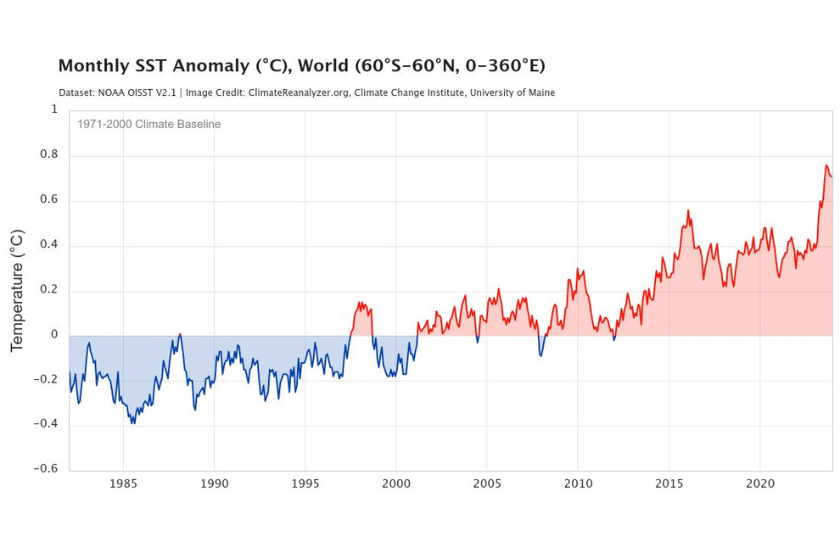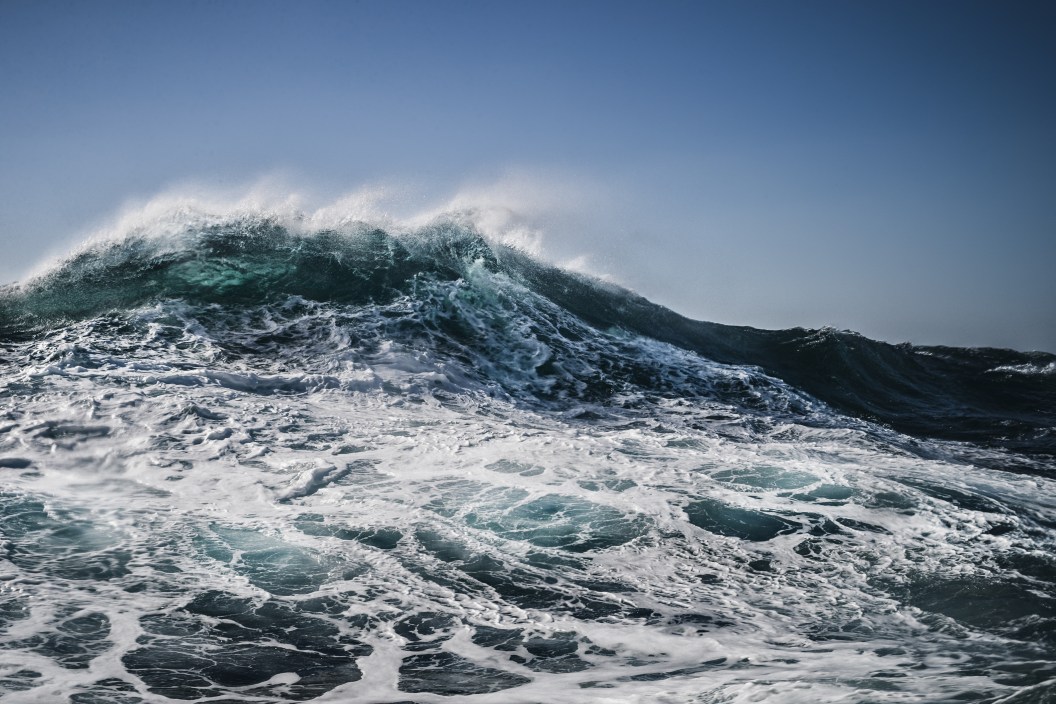While a wintery swim in the North Atlantic might not be high on your list of 'to-dos' this season, if you did work up the gumption, you'd find water that is significantly warmer than it has been in recent decades. While the warming ocean may not quite be tropical (yet), it is cause for alarm; rapidly warming oceans could bring more hurricanes, species mass die-offs, and the end of an ocean current as we know it.
As early as March 2023, the North Atlantic Ocean was breaking heat records. And it's only getting worse. Just a few days ago, Chief Meteorologist Jeff Beradelli wrote on the NewsChannel 8 website, "Meteorologists like myself were astonished by last year's unprecedented sea surface temperatures in the North Atlantic. And yet, to our amazement, they are even more deviant right now."
Anomalies in main development region in uncharted territory! Visual compares some of the most active hurricane season Feb SST's w/ 2024. 2005, 2010, 2020 were big seasons. But SST's don't hold a candle to 2024. Still time for moderation (# on right=named storms in that season) https://t.co/zc1BJFk3ov pic.twitter.com/LAr6TUwc6S
— Jeff Berardelli (@WeatherProf) February 21, 2024
He's not the only one taking note. Brian McNoldy, a Senior Research Associate at the University of Miami Rosenstiel School, wrote on X last week that, "The North Atlantic sea surface temperature is now 4.5 standard deviations above the recent 1991-2020 climatological mean. That translates to a 1-in-284,000 year event."
Extraordinary odds. And yet it's an event that is likely to keep happening—if current trends persist.
As of mid-February, the average sea surface temperature in the North Atlantic is 2 degrees Fahrenheit above the 1990-2020 normal, and nearly 3 degrees F above the 1980s normal. The graph below, from the University of Maine Climate Reanalyzer illustrates the North Atlantic temperature trend (by temperature, in Celsius) for all of the Januarys between 1940 and 2024; the warming trend is blatantly obvious, as is the fact that the graph jumps off the page as it gets closer to February 2024.

University of Maine Climate Change Institute
While 2 to 3 degrees Fahrenheit of warming may not sound like a lot to you, the rise in temperature is having sweeping changes to the marine environment. Warm ocean waters affect the health and feeding habits of wildlife, from plankton to whales. Warmer means smaller fish, with some fish species shifting towards the poles as they seek cooler climates.
Warm waters also fuel hurricanes, and an increasingly warmer Atlantic Ocean could man longer, more active hurricane seasons. The 2023 Atlantic hurricane season ranked fourth for the most named storms in a year since 1950.
Warming Ocean Waters Could Collapse Atlantic Currents
A study published in early February also found that warmer temperatures are causing Atlantic current systems to begin to collapse. The Atlantic Meridional Overturning Circulation (AMOC), which includes the Gulf Stream, is essentially a giant conveyor belt, shuffling warmer water from the tropics to the North Atlantic, where it cools, sinks, and heads back southwards. The AMOC carries heat and nutrients across the ocean, and is largely what keeps swaths of the Northern Hemisphere, like the UK, relatively mild.
Unfortunately, climate change, in particular warming oceans and melting sea ice, could halt the conveyor belt as it becomes flooded with freshwater. The study ran complex climate models that simulated a gradual increase in freshwater to the AMOC. In response, the AMOC slowly weakened, and then abruptly collapsed. A collapse of the AMOC would be catastrophic, potentially plunging temperatures in Europe by over 80 degrees Fahrenheit over the course of a century.
While the study wasn't able to predict when the AMOC could collapse, a 2021 study found that the AMOC was weaker today than any other time in the past 1,000 years.
The Culprit? Humans
Climate change is, of course, primarily to blame. Since the Industriall Revolution, humans have raised the average temperature of the earth by 2.3 degrees Fahrenheit, mostly through burning fossil fuels and releasing Greenhouse gas pollutants like carbon dioxide. The ocean has taken the brunt of the warming; more than 90% of the excess heat energy on Earth is being stored there. All of this heat is increasing temperatures, raising sea levels, melting glaciers and ice sheets, and causing marine species die offs, already.
Unfortunately, climate change is not an easy train to turn around. A new study indicates that the planet has already surpassed 1.5 degrees C of warming, the limit set by the 2015 Paris Agreement in an attempt to avoid the worst impacts of climate change.
Without incredible, global efforts to slow climate change, we may be heading to ever warmer waters and a complete AMOC shutdown.
READ MORE: Saving Michigan's Failing Whitefish Population




